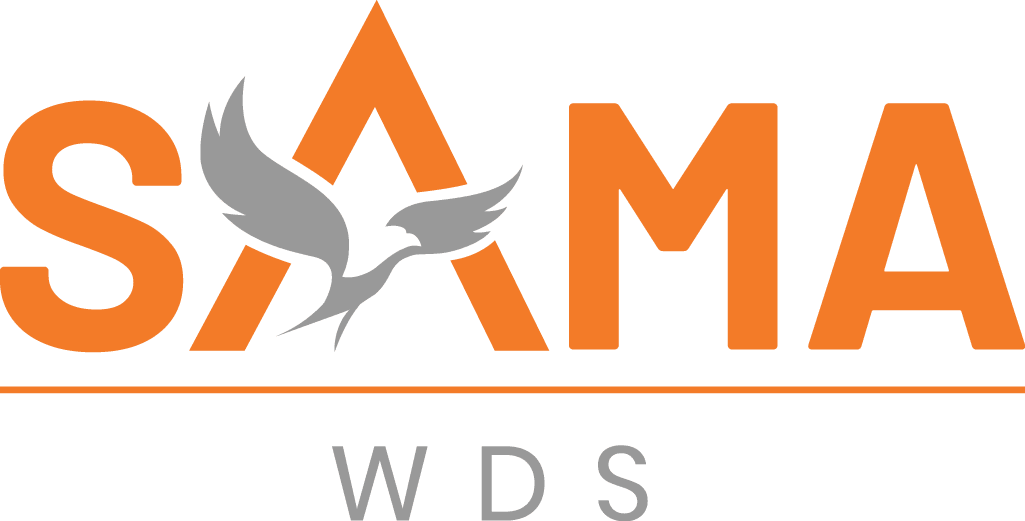
The Ultimate Guide to Workday Modules: Maximizing Efficiency and Performance
Introduction
Workday modules are designed to revolutionize HR management. By integrating various functions into a unified system, they enhance efficiency and performance for HR professionals. Workday HCM modules offer solutions that address critical HR needs, from employee recruitment to payroll processing.
Key areas covered in this guide:
- Understanding Different Types of Workday HCM Modules: We’ll explore the core components and their specific roles.
- Essential Workday Modules for Seamless HR Operations: Learn about additional modules that ensure smooth HR functioning.
- Benefits of Leveraging Workday HCM Modules: Discover how these tools drive data-driven strategies and improve decision-making.
- Customization Capabilities: Understand how Workday can be tailored to fit unique business requirements.
- Integrating Workday HCM with Existing Systems: Tips on achieving seamless functionality through integration.
- Staying Ahead with Updates and Trends: Stay updated with innovations and future developments in Workday HCM.
This guide aims to provide a comprehensive understanding of maximizing efficiency and performance using Workday HCM modules.
For organizations planning to implement Workday, it’s important to recognize the challenges that may arise during the process. Navigating Workday implementation challenges is crucial for success. However, with the right expertise, these challenges can be overcome effectively.
Ready to maximize efficiency with Workday modules?
Sama specializes in designing, optimizing, and supporting advanced Workday module workflows tailored to your unique business needs.

Understanding Different Types of Workday HCM Modules
Workday HCM modules are designed to streamline the many facets of Human Capital Management. Each module plays a pivotal role in ensuring smooth operations within an organization.
Core HR Module
The Core HR module serves as the backbone of the Workday system. It manages essential HR functions like employee data, organizational structures, and compliance. For example, it enables HR teams to maintain detailed employee records and organizational charts, ensuring accurate data management.
Talent Management Module
Key features of the Talent Management module include performance reviews, succession planning, and career development tools. Organizations can assess employee performance continuously, identify potential leaders, and create personalized development plans. This module ensures that talent is nurtured and aligned with business goals.
Payroll Module
The Payroll module simplifies compensation processes. It automates payroll calculations, tax deductions, and compliance reporting. By integrating with time tracking systems, it ensures employees are compensated accurately and on time.
Benefits Module
The Benefits module efficiently manages employee welfare programs such as health insurance, retirement plans, and other perks. Through this module, employees can enroll in benefit programs effortlessly during open enrollment periods or life events.
These modules collectively enhance HR management efficiency by automating routine tasks and providing comprehensive tools for strategic HR planning. To further optimize your Workday experience and achieve business success through efficient implementation and utilization of these modules, leveraging Workday services can be highly beneficial.
Other Essential Workday Modules for Seamless HR Operations
Recruitment Module: Attracting and Selecting Top Talent with Ease
Workday modules offer a streamlined approach to recruitment. The Recruitment module simplifies the process of attracting and selecting top talent. From job postings to candidate management, this module provides tools for:
- Creating and managing job requisitions
- Tracking candidate progress through the hiring pipeline
- Facilitating communication between recruiters and candidates
Ensuring Workforce Productivity Through the Time Tracking Module
The Time Tracking module ensures accurate time management, crucial for workforce productivity. Key features include:
- Real-time tracking of employee hours
- Automated timesheet submissions
- Integration with payroll for seamless compensation processing
Promoting Employee Growth and Development with the Learning Module
Fostering continuous professional development is vital. The Learning module empowers organizations to:
- Deliver customized learning paths
- Track employee progress in training programs
- Ensure compliance with mandatory training requirements
These Workday modules provide comprehensive solutions for HR operations, enhancing overall efficiency.
Benefits of Leveraging Workday HCM Modules for HR Management
1. Utilizing Workday modules to drive data-driven HR strategies
Workday HCM modules enhance strategic decision-making through real-time analytics. They enable HR professionals to extract actionable insights from vast datasets, fostering a culture of informed decision-making. For instance, the Talent Management module offers detailed performance metrics, helping identify high-potential employees and align workforce strategies with business objectives.
2. Improving workforce planning and decision-making through module integration
Integration across various Workday modules ensures seamless data flow, leading to more accurate workforce planning. The interconnection between Core HR and Payroll modules ensures precise compensation management while aligning with organizational goals. This integrated approach facilitates better resource allocation and strategic forecasting.
3. The role of automation in enhancing HR processes with Workday modules
Automation within Workday HCM modules streamlines routine tasks, reducing manual workload and human error. For example, automated payroll processing minimizes discrepancies and ensures timely salary disbursements. Similarly, the Recruitment module automates candidate tracking and onboarding processes, accelerating talent acquisition and improving overall efficiency.
By leveraging these capabilities, organizations can foster a dynamic and responsive HR environment.
Customization Capabilities of Workday Modules to Suit Business Needs
Workday modules customization provides unparalleled flexibility to align with unique organizational requirements. This adaptability ensures that various business needs, whether industry-specific or company-specific, are met efficiently.
Key Aspects of Customizing Workday Modules:
Tailored Dashboards
Personalized dashboards for different roles enhance user experience and operational efficiency.
Custom Reports and Analytics
Generate specific reports and analytics that cater to your business metrics and KPIs.
Configurable Workflows
Modify workflows to streamline processes according to your organizational hierarchy and approval chains.
Example: A retail company can customize its Workforce Management module to handle seasonal hiring surges effectively, ensuring optimal staffing levels during peak times without manual intervention.
Customization allows businesses to not only meet current demands but also scale operations seamlessly as requirements evolve. Through these tailored solutions, organizations can maximize the potential of Workday modules, ensuring robust performance and efficiency.
Ready to maximize efficiency with Workday modules?
Sama specializes in designing, optimizing, and supporting advanced Workday module workflows tailored to your unique business needs.

Integrating Workday HCM with Existing HR Systems for Seamless Functionality
Integrating Workday HCM with other HR systems is essential for a smooth and efficient HR management process. With Workday’s flexible API integration capabilities, organizations can easily connect Workday HCM with different software solutions, ensuring all HR systems work together seamlessly.
Integration Options
Here are some options for integrating Workday HCM with other HR systems:
- Pre-built Connectors: Use ready-made connectors specifically designed to connect Workday with popular systems like SAP, Oracle, and Salesforce.
- Custom API Integration: Develop custom API connections to integrate unique or legacy systems that don’t have pre-built connectors available.
- Middleware Solutions: Implement middleware platforms such as MuleSoft or Dell Boomi to facilitate complex integrations between Workday and other HR systems.
Ensuring Data Consistency
When integrating multiple HR systems, it’s crucial to ensure that data remains consistent and accurate across all platforms. Here are some measures you can take to achieve data consistency:
- Real-time Data Sync: Set up real-time data synchronization between Workday HCM and other integrated systems. This ensures that any changes made in one system are immediately reflected in the others.
- Data Validation Rules: Establish comprehensive data validation rules and protocols to validate incoming data during the integration process. This helps identify any errors or inconsistencies before the data is transferred.
- Audit Trails: Implement audit trails within your integrated HR ecosystem to track and record any changes made to employee data. This not only helps with compliance but also ensures data integrity across all systems.
By implementing these integration strategies, organizations can maintain a unified and consistent HR ecosystem, leading to improved efficiency and overall performance.
Staying Ahead with Workday HCM Module Updates and Future Trends
Workday HCM updates make sure the system stays up-to-date with changing HR needs. Regular updates bring in new features, improve existing functions, and enhance user experience. For example, the recent addition of augmented analytics in Workday allows HR professionals to get deeper insights into workforce metrics.
Key Future Trends
1. Artificial Intelligence (AI) Integration
- AI-driven insights for better decision-making.
- Automation of repetitive tasks.
2. Enhanced Employee Experience
- Personalized dashboards.
- Improved self-service capabilities.
3. Advanced Analytics
- Predictive analytics for proactive HR strategies.
- Real-time data visualization tools.
4. Mobile Accessibility
- Enhanced mobile app features.
- Seamless access to HR functions on-the-go.
5. Compliance and Security
- Continuous improvements in data security.
- Compliance with global regulations.
These trends keep Workday HCM at the forefront of HR technology, making sure it adapts to future challenges and opportunities.
Conclusion
Using the Workday HCM system effectively is crucial for improving efficiency and performance in HR management. Each module, from Core HR to Learning, plays an important role in making processes smoother, increasing productivity, and prioritizing employee well-being.
Here are the main points to remember:
- Data-Driven Strategies: Workday modules empower HR teams to make informed decisions with real-time data.
- Integration and Automation: Seamless integration with other systems and automation capabilities reduce manual tasks.
- Customization: Tailoring the modules to fit unique organizational needs ensures optimal functionality.
By fully exploring and utilizing the features of Workday, you can transform your HR approach. Take the time to learn about each module, its capabilities, and how it can support your specific needs. This will help you build a strong, efficient, and future-ready HR system.
Start using Workday HCM modules to their full potential today.
Ready to maximize efficiency with Workday modules?
Sama specializes in designing, optimizing, and supporting advanced Workday module workflows tailored to your unique business needs.

